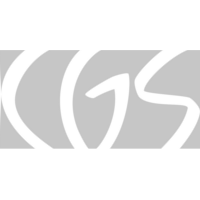







Reviewing procedure of scientific articles submitted for publication in «Colloquia Germanica Stetinensia»
1. The editors of the issue make an initial assessment of the text submitted from the point of view of its conformity with the profile of the Journal and the basic requirements concerning the scientific methodology and the quality of content. Articles that do not comply with the basic publication requirements are rejected.
2. The articles that have been accepted are sent to two independent reviewers who are affiliated with an academic institution that has to be different from the one represented by the author. The reviewers should reveal any conflict of interest, in particular:
direct personal relations (kinship, legal relations);
professional subordination;
direct academic cooperation up to two years before writing the reviews.
3. The articles are reviewed anonymously (double-blind review process).
4. The current list of reviewers is published in each issue and on the Journal’s website, but the surnames of reviewers of a particular article are not revealed.
5. Rules of assessing articles and a reviewing form are made public on the Journal’s website.
6. Reviews are in written form and are basis for accepting or rejecting an article. If there is a controversy the final decision is made by the editors together with the Scientific Council of CGS.
7. After the author(s) receive(s) the reviews they are obliged to proofread the text and take the reviewers’ comments – if there are any – into consideration.
8. Prior to publication every article undergoes a verification by the professional proofreader and by the editor of the publishing house.
9. The author(s) should read all the remarks, suggestions of corrections of language mistakes and incorporate them into their article. Should the author(s) not wish to observe the suggested remarks and correction suggestions, they should provide written justification of their decision. Before the article is accepted for publication, the authors have to sign the declaration on ghostwriting, which is to be found on the «Colloquia Germanica Stetinensia» journal’s website in the menu option “For Authors”, and send it to the Editorial Office; hereby the authors declare that: a) they present results of their own research; b) the submitted article is fully original and does not infringe any third-party rights (of natural or legal persons), and it has not been published anywhere before, irrespective of the character of the publisher; c) the author(s) incorporated the remarks of the reviewers in the article or that they do not agree with some of them – with a justification of their decision, which ultimately shall be verified by the editorial board.
10. After the editing process in the publishing house there is still the opportunity for the author(s) to correct the proofs. When the author discovers an error or inaccuracy in their own published work, it is the author’s obligation to promptly notify the journal editor. Should the author(s), without justification, not observe the suggested remarks and correction suggestions, their article can eventually be rejected.
Contribution to editorial decisions: Peer reviews assist the editor in making editorial decisions and may also help authors to improve their manuscript. Should the reviewer have critical remarks concerning the manuscript, they are to assess whether in spite of these the manuscript can be accepted for publication. If it is so, the reviewer should also formulate suggestions of improvements and/or additions to be made. The reviewer in such case can demand another insight in the corrected manuscript or – in case of remarks of lesser factual significance – leave the decision to the editorial board.
Competence and promptness: Any selected reviewer who feels unqualified to review the research reported in a manuscript or knows that its timely review will be impossible should notify the editor and excuse himself/herself from the review process.
Confidentiality: The whole manuscript received for review must be treated as confidential document and shall not be used for personal profit. The manuscript must not be shown to or discussed with others except those authorized by the editor.
Acknowledgement of sources: Reviewers should identify the relevant published work that has not been cited by authors. Any substantial similarity or overlap between the manuscript under consideration and any other published paper should be reported to the editor.
Standards of objectivity: Reviews should be conducted objectively and expressed clearly by means of appropriate arguments. The reviewed academic articles are confidential and reviewed anonymously (double-blind review process). Generally the reviewers and the author(s) have to be affiliated with different academic institutions. If, however, the reviewer knows the identity of the author and believes that there is a conflict of interests, they should notify the editorial board about this fact. The reviewers are obliged to disclose potential conflict of interests, pertinent in particular to:
For this purpose the reviewers are requested to fill in and sign the Reviewer’s declaration available on the website of the journal COLLOQUIA GERMANICA STETINENSIA in the menu option “Reviewing procedure”
Transparency of the reviewing procedure: The current list of reviewers is published in each issue and on the Journal’s website but the surnames of reviewers of a particular article are not revealed. Rules of assessing articles and a reviewing form are made public on the Journal’s website in the section “Reviewing procedure”. Reviews are in written form and are basis for accepting or rejecting an article. If there is a controversy, the final decision is made by the thematic editors together with the Academic Advisory Council of CGS.
Reviewers in 2025
Reviewers in 2024
Reviewers in 2023
Reviewers in 2022
Reviewers in 2021
Reviewers in 2020
Reviewers in 2019
Reviewers in 2018
Reviewers in 2017
Reviewers in 2016
Reviewers in 2015
Reviewers in 2014
Reviewers in 2013